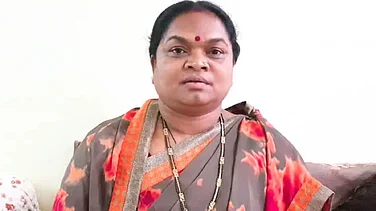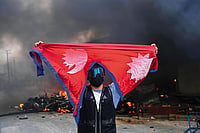The Supreme Court has issued directives to the Unique Identification Authority of India (UIDAI) and the Manipur government to ensure that Aadhaar cards are provided to individuals who have been displaced due to the ongoing ethnic conflict in the state. These individuals' records are already available with the UIDAI.
The apex court emphasized the importance of verifying the authenticity of the displaced individuals before expeditiously issuing Aadhaar cards. The UIDAI will cross-reference the claims of those who have lost their cards with its existing biometric data, PTI reported.
Furthermore, the bench, headed by Chief Justice D Y Chandrachud, instructed the secretary of Manipur's finance department to instruct banks in the affected areas to provide information on bank accounts to those who have lost their documents. Additionally, the secretary of Manipur's health department was directed to expedite the issuance of disability certificates and duplicates for specially-abled persons in relief camps.
These directives were issued while the court was considering reports submitted by an all-woman committee of former high court judges, chaired by Justice (retd) Gita Mittal, which was appointed by the apex court. The committee sought various directions related to lost personal documents of those affected by the conflict.
During the hearing, the bench raised concerns about verifying the legal status of the individuals to be issued Aadhaar cards, highlighting the need to ensure they are genuine residents or citizens. Solicitor General Tushar Mehta, representing the Centre and Manipur government, suggested that many issues could be resolved through discussions between the committee and relevant authorities.
The bench also noted that the committee had not pressed for certain directions mentioned in its reports and suggested that if government authorities failed to respond to the committee's reports or directions, the committee could bring the matter to the court's attention.
The issue of properties occupied by others after being burnt during the violence was raised by one of the lawyers, to which the bench replied that it is a matter of law and order and that the committee is already addressing it.
Regarding the disposal of dead bodies, Mehta informed the court that authorities were following the committee's directions. The bench urged patience and emphasized allowing the process to work.
In response to various issues raised during the hearing, the bench suggested that the committee could handle multiple aspects and that these issues should be brought to the committee's attention. They also discussed the possibility of appointing a nodal officer in Delhi to assist displaced individuals who have temporarily resettled outside the state.





















